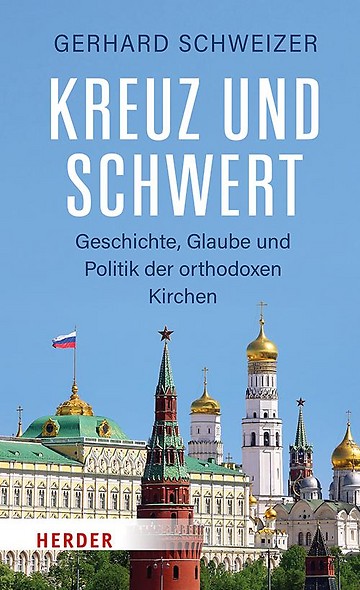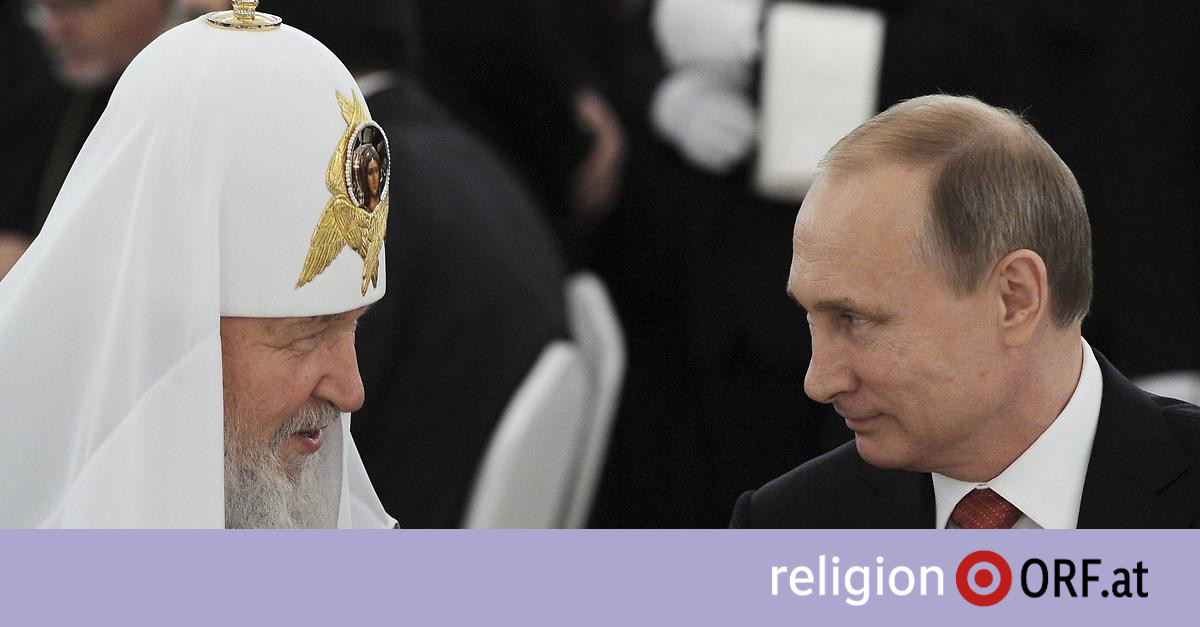According to Schweitzer, the book’s goal is to present Orthodox Christianity in all its diversity and the “protracted and conflict-ridden development of religion and politics in individual Orthodox Churches”. Schweitzer also touches on the cultural foundations and idiosyncrasies of faith and thus gives an insight into the religious, but above all political, development.
We can see the complexity of this description by looking at membership numbers around the world, which is what Schweitzer addressed at the outset. The very different counting methods, but also the lack of basic information, for example about the relationship between religion, tradition and identity, make it difficult to make general statements about the prevalence and importance of the faith, explains Schweitzer.
Important historical developments
As Schweitzer describes at length, understanding contemporary conflicts requires knowledge of history. In the context of his book, the cultural scientist traces the beginnings of Christianity, the reasons for the division into different sects, the structural change within the Orthodox Church, and the developments after the collapse of Yugoslavia in an easy-to-read manner. Schweitzer devotes a separate chapter to Russia and Ukraine.
“The Cross and the Sword.” History, Faith, and Politics in the Orthodox Churches does not claim to be exhaustive. It does, however, provide a good overview of historically crucial developments and contemporary alliances between the Russian Orthodox Church and state. The book is only partially up-to-date in terms of theological research. This is evident in the description Evangelicals as “former pagans” (sic), “converts to Christianity” – an entirely controversial assessment, as Schweitzer refers to a theological work from 1996.
However, this circumstance seems to be more dangerous in the presentation of the orthodox self-image and understanding of religion. Schweitzer here refers to the Wikipedia entry and theological works from the 1980s. The picture shown is not enough. Schweitzer’s professional background may explain these abbreviations, but they still seem problematic, because he has set himself the goal of analyzing the importance of faith in political developments. However, theology and its arguments play a central role in this.

Book reference
Gerhard Schweitzer, Cross and Sword. History, Faith, and Politics of the Orthodox Churches. Herder, 240 pages, 24 euros.
The transparency of your position
The beginning of the book shows that Schweitzer is acutely aware of such challenges elsewhere. Here he reflects on his Western European background and his relationship to Orthodox Christianity. He addresses his own prejudices and the judgments of others, which come up again and again throughout the book, for example when Schweitzer talks about personal encounters and conversations with a wide range of people.
It is also significant that Schweitzer makes his position transparent in The Journey and the Code because he posits a unified Western European worldview and orthodox Christianity, and this sometimes makes it seem monopolistic or exclusionary. For example, when Schweitzer asks, “What characterizes Eastern Europe, and what troubles us?”
Added value: historical understanding
In “The Cross and the Sword” Schweitzer clearly focuses on political events. While mostly theological arguments are mentioned without going into depth, he goes into detail about how warring nations use religion as a propaganda tool to this day.
Schweitzer’s comments about religious and political alliances and exclusive claims to truth are of great importance in times of growing fundamentalist movements. The same applies to his attempt to show and categorize the possible national-religious conflict. While The Cross and the Sword is flawed from a theological perspective, it offers historically sound and interesting knowledge to better understand contemporary developments.

“Explorer. Communicator. Music geek. Web buff. Social media nerd. Food fanatic.”






More Stories
It's Always Sunny in Philadelphia, Rob McElhinney Responds to Jerry Seinfeld Sitcom Criticisms About 'PC'
Scientists are preparing for solar storms on Mars
Ryan Gosling, Beavis, Mickey Day, and Butt-Head at the Fall Guy premiere